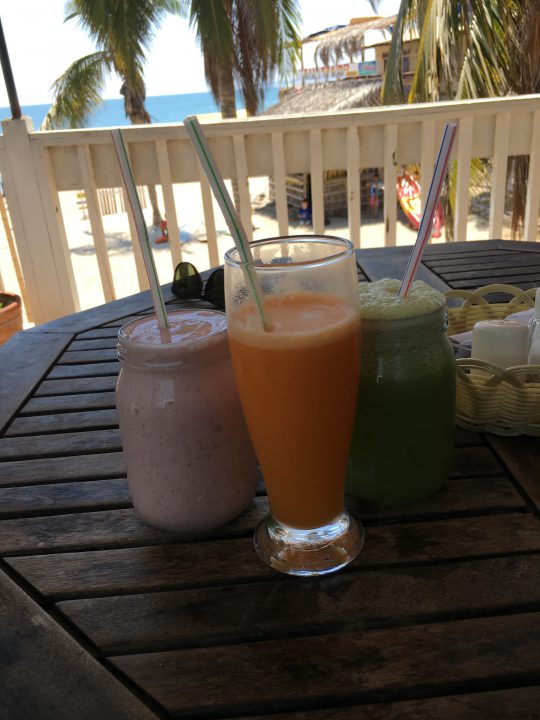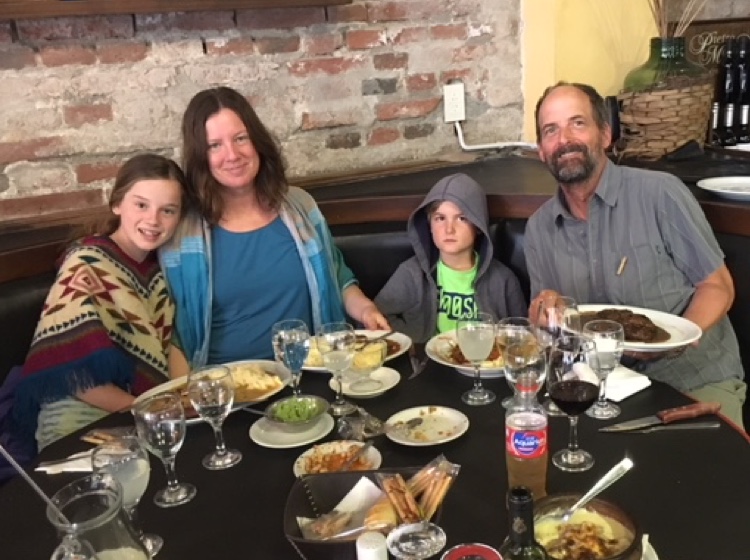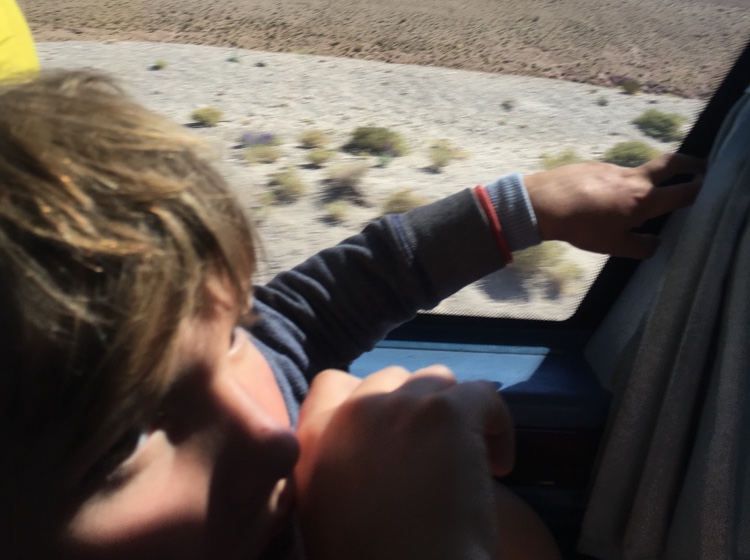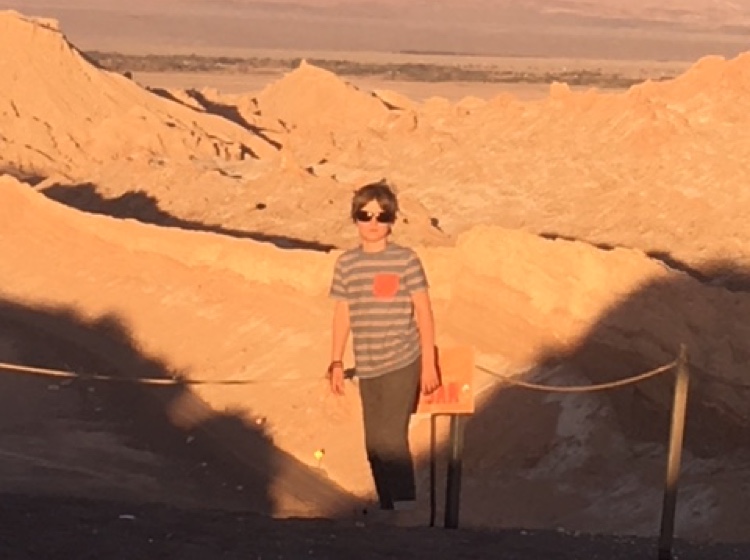We just left Mancora, a beach town in northern Peru, where we spent a few days after crossing the border to Ecuador, getting our bearings and recovering from culture shock before moving on. It’s a pretty typical third-world beach town, with all that entails. Pros: beautiful and entertaining beaches with surfing, horseback-riding, churro salesmen, and my favorite chilled coconut vendor…

Cons: lots of ratty looking young tourists getting wasted, and everything looks — and smells — like crap once you get off the beach.
So far, here are the differences I’ve detected between the two countries:
–Peru is louder. The music is all turned up a notch. Pan-flute covers of everything have given way to blaring techno and pop. At one point, Sarah and I were shopping in a grocery store and a Peruvian form of gangster hip-hop was playing so loud we were literally vibrating. I never thought I’d miss pan-flute music, but…
–Peru is dryer and dustier. When we crossed the border — a bridge across a river — it’s like someone turned everything green into brown. Thus, instead of hot springs, we have mud baths.

–The people in Peru are more animated, more aggressive (in terms of the tourist industry), and just…more. When we got off the bus, we were immediately set upon by numerous taxi drivers begging for our patronage, and this has been the pattern since. You get a feeling that there’s not quite enough tourism to support everyone in Peru who wants to make a living in tourism. In Ecuador, the presence of many, many gringos, retired and otherwise, gave you the sense that there were almost too many tourists to go around. Not so much here.
–I can’t understand the Spanish spoken here. In comparison, Ecuador Spanish seemed like the Spanish you hear on instructional Spanish recordings. In Ecuador, I could hang with most of the drivers and maintain a conversation. So far in Peru, I can barely understand “Where are you from?”
–The food in Peru is ten times better. Sorry, Ecuador, but it’s true. Peru knows how to use spices. It’s like my taste buds just woke up after being asleep for six weeks. Amazing drinks and cocktails. Frozen lemonade seems to be standard here, and oh, the smoothies…

I’ve had some passionfruit mojitos that have made me nearly weep with joy. Mancora, it seems, is a tourist beach town undergoing a culinary revolution: We only ate at restaurants a half block from our beachside hotel, and all of them were fantastic.
–In Peru, people clean by beating things with rags. Maybe it’s because it’s so dry that dust settles on all surfaces; maybe it’s because Peruvians have found a way to channel their aggressions in a positive way.
–Coffee here is weird. The coffee in Ecuador was so good I started drinking coffee again for the first time in twenty years. (Ecuador was also a revelation in terms of how much herbal tea they drink.) In Peru, they serve crappy instant at breakfast with condensed milk and a pitcher of hot water. I’m back off caffeine.
–Peru takes bus riding seriously. They have all kinds of buses and compared to Ecuador, all of them seem to work really well. In Ecuador, when Sarah asked what kind of receipt the bus guy could provide for our bags, the guy who took our bags solemnly said, “When we get to our destination, I will give you four bags.” In Peru, there are baggage checks, bathrooms on the buses and even double-decker long-distance buses. One thing remains the same, however: Both Ecuadorian and Peruvian buses seems to feature American movies you’ve never heard of starring trained German Shepherds.

–Every town in Peru has its own kind of taxi. In Ecuador, taxis were pretty standard. In Peru, no taxi is standard; they’re all incredibly tiny or odd. Mancora had nothing but mototaxis (motorcycles pulling chariots); the next town, Chiclayo, had nothing but mini-coupe-sized cars. (We waited at the bus station for a while before we found someone who could fit us and our luggage. Finally, a driver lashed all our bags to the roof of his tiny car and took us to our hotel.) Also, there seems to be no meters and no customary charges for certain trips. Which means every trip involves a negotiation. Which brings us to…
–Prices for everything seem more up for grabs — everything seems negotiable. For a terrible negotiator like me, this is bad news. I’ve now taken to automatically responding to every price, “Es muy caro, no?” (“It’s very expensive, isn’t it?”) and seeing what happens.
I knew when we were planning the trip that Ecuador would be like traveling with training wheels, and I was right. I’m happy to be in Peru — there is a wildness and rawness about the place that’s irresistible — but it feels like we’ve lost a few layers of protection from totes, smoke and poverty.



